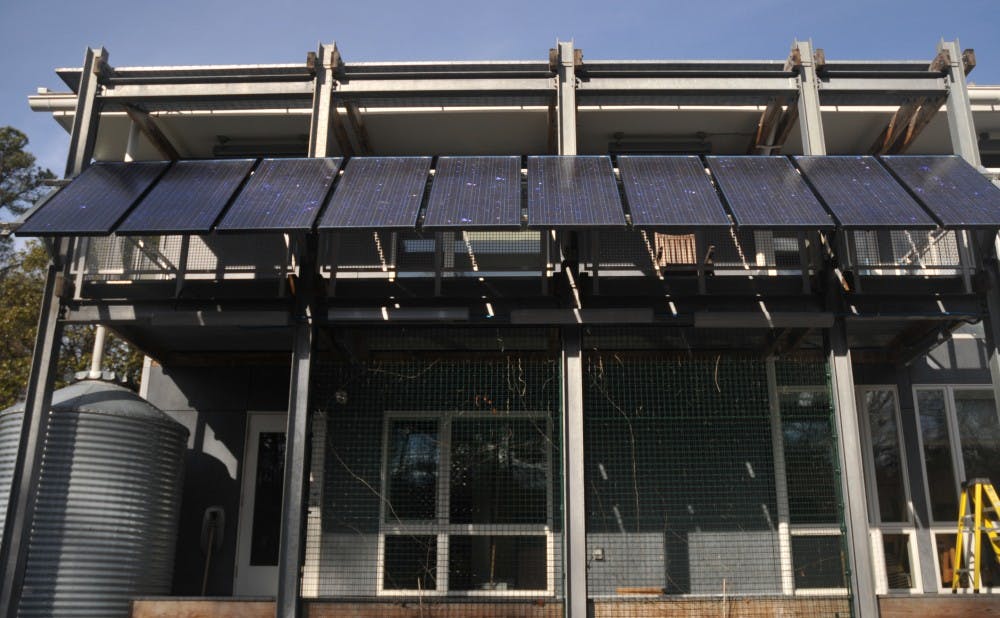Several Duke Energy power plants have been cited for environmental violations since a pipe broke under a Duke Energy coal ash pond and leaked ash into Dan River in February.
The Dan River Steam Station received two citations following the Feb. 2 spill that covered 70 miles of Dan River with coal ash. Since then, five more Duke Energy power plants have received citations for lacking required storm water permits. The incident has spurred dialogue on the importance of renewable energy such as solar and wind power.
“It continues to raise concerns about fossil fuels and motivates people to try and switch over,” said Lincoln Pratson, director of the Duke University Energy Hub and associate director of the Gendell Center for Engineering.
Coal-fired power plants generate coal-fly ash, which contains toxic trace elements such as arsenic, lead and mercury. Richard Di Giulio, professor of environmental toxicology, said these carcinogenic elements pose a serious health risk if they infiltrate drinking water and can severely damage surrounding ecosystems.
"It will take years for the river to recover from this contamination," he said.
These concerns may not be enough to create significant and timely change though. The U.S. Energy Information Administration's website noted that coal energy still represented the country’s largest percentage of energy production in 2013.
“The challenge is that we consume a lot of energy and we consume it 24/7,” Pratson said. “We’re still struggling to come up with sustainable forms of energy that can meet that demand. Until that happens we’ll have to continue to rely on fossil fuels.”
North Carolina has been making significant steps in renewable energy production and investment and is ranked third in the country in utility-scale solar capacity in advanced development or under construction. In addition, the state has a 35 percent renewable energy tax credit that makes it cheaper to invest in renewables.
Furthermore, Gov. Pat McCrory is a strong supporter of solar energy.
“North Carolina is home to one of the fastest growing solar industries in our nation,” he said in a press release on his website. “It is important that we recognize the impact the solar industry is making in our state.”
The sources of renewable energy, however, can make it difficult to meet the full demand for power.
“From a cost-competitive standpoint, renewables are continuing to make progress toward matching the cost of fossil fuels,” Pratson said. “The challenge is meeting demand when the wind doesn’t blow and the sun doesn’t shine.”
High demand for energy as well as the environmental and public health risks associated with fossil fuels makes innovation in energy storage technology incredibly important right now, Pratson said.
“Business innovation holds promise in helping us provide power in times when we have to bridge the lake of natural resources," he said. "But it’s not going to happen overnight. These things can take years or even decades to play out.”
Get The Chronicle straight to your inbox
Signup for our weekly newsletter. Cancel at any time.

